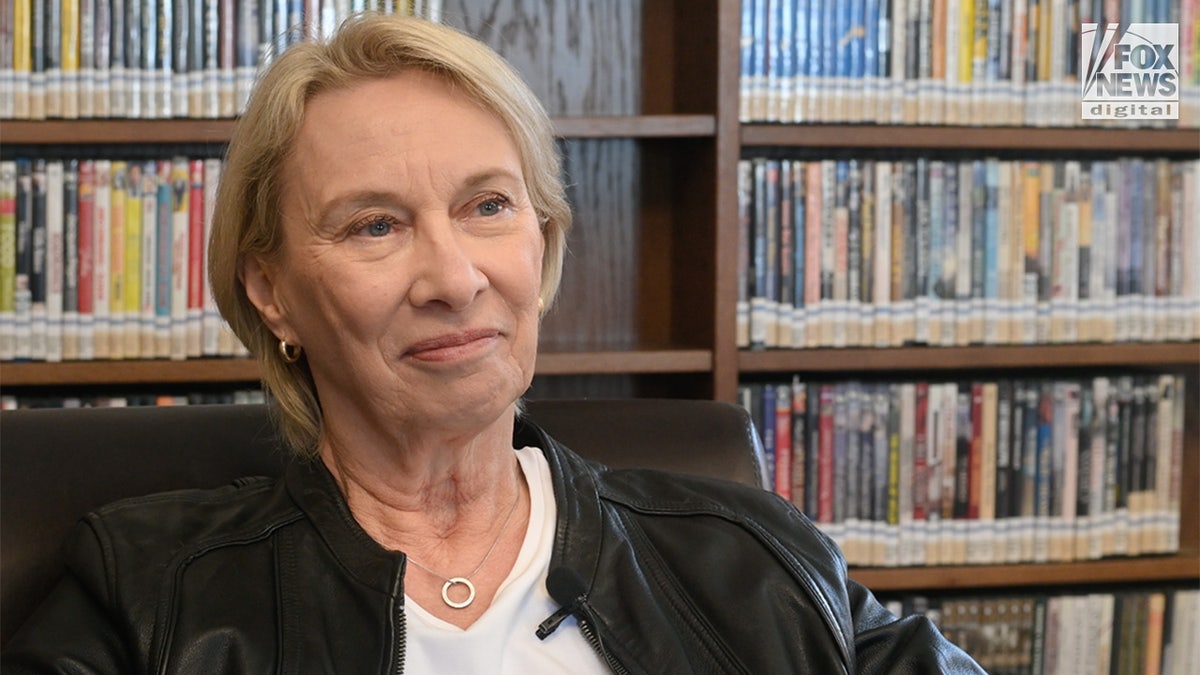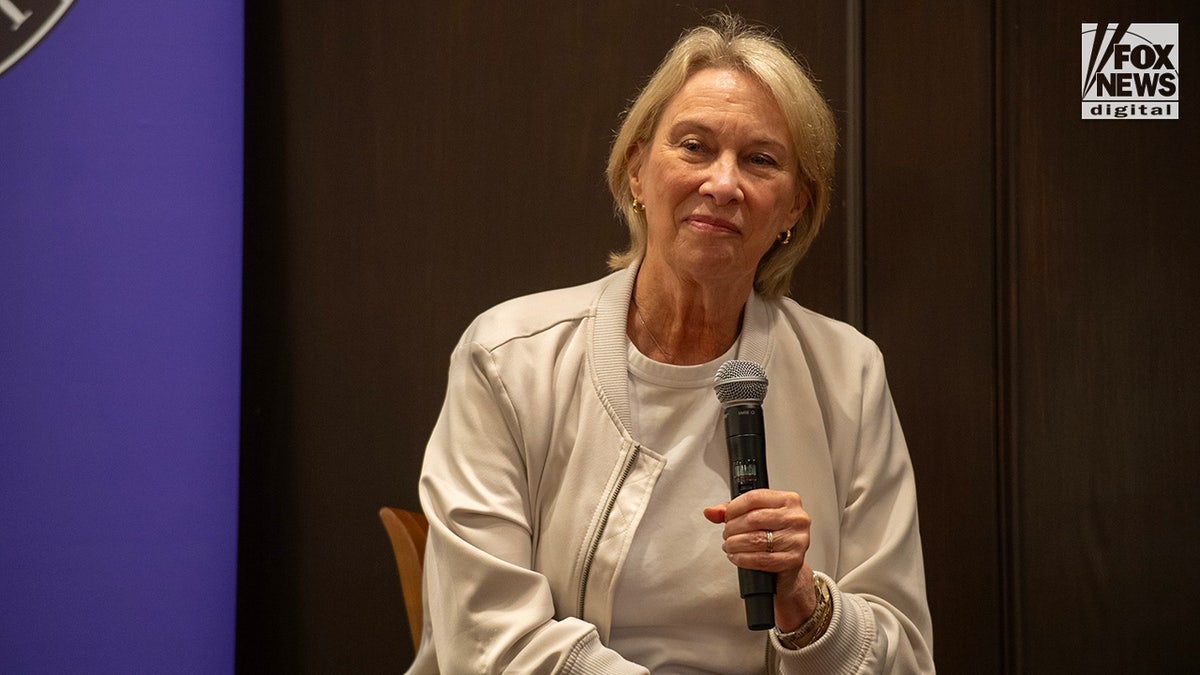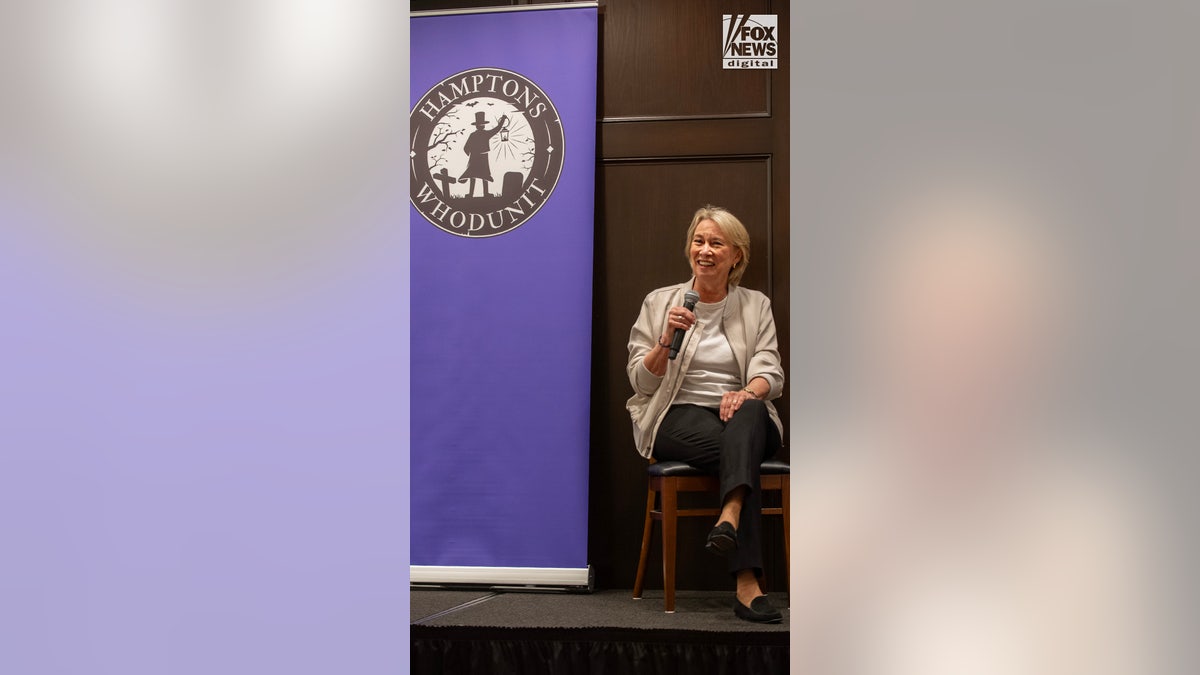Barbara Butcher shares chilling details from her time as a New York City forensic investigator
Former New York City Medical Examiner Chief of Staff Barbara Butcher speaks to Fox News Digital about the emotional toll of her role in death investigations at the Hamptons Whodunit conference in New York. (Julia Bonavita/Fox News Digital)
Her dream job was often a nightmare.
Barbara Butcher spent decades with the office of the chief medical examiner in New York City, visiting more than 5,500 death scenes – nearly 700 of which were homicides, including the Carnegie Deli massacre and the terrorist attacks of 9/11.
Dealing with the victims' families required her to maintain her composure as they endured the worst days of their lives, she told Fox News Digital. Once, when speaking to a victim's mother, the woman had a breakdown.
"She said, 'You're just a bad dream. I'm trying to wake up. You're a bad dream, that's all,'" Butcher recalled in an interview at the Hamptons Whodunit conference, which teamed up true crime investigators with mystery writers in Long Island's East Hampton Village.
"And that chilled me to the core."

Barbara Butcher, former New York City chief of staff and director of the Forensic Sciences Training Program and chief medical examiner, speaks to Fox News Digital at the Hamptons Whodunit Crime Conference in Southampton, New York on Saturday, April 13, 2024. Butcher’s new book, "What the Dead Know," chronicles her experience investigating over 5,500 death scenes throughout New York City. (Julia Bonavita/Fox News Digital )
"Those cases are burned in my memory," Butcher, who investigated the Big Apple's murder scenes during the city's struggle to overcome violence in the 1990s, told Fox News Digital.
She said her main goal was to shine a light on the trauma that death scene investigators such as herself, police officers and emergency medics face on a daily basis.
SIGN UP TO GET TRUE CRIME NEWSLETTER
"I want those investigators and cops to take care of themselves," she told Fox News Digital. "Don't do like I did back in the old days with, 'Oh, we don't need any therapy.' Ha! Bulls---. We needed a lot of therapy."
Many of the cases included horrific crimes against helpless victims.
BRYAN KOHBERGER DEFENSE ‘FIRMLY BELIEVES’ IN SUSPECT'S INNOCENCE
I loved my job. I absolutely loved it. But it destroyed a large portion of my heart.
One image that she said rattles her to this day was the execution-style slaying of a family of four.
"I walked into the room and saw a little boy laying on his stomach with his soft brown curls and his little golden skin, and his backpack was like ‘Star Wars,’ or something that kids love, he was obviously on his way to school when he was shot, and he had a gunshot wound in his head, and my heart seized up," she said. "I froze."
She had to call in a uniformed officer under the pretense that she needed a witness to her examination so that she could put on a mask and get through the investigation, she said.

Barbara Butcher, former New York City chief of staff and director of the Forensic Sciences Training Program and chief medical examiner, answers questions during a panel at the Hamptons Whodunit Crime Conference in Southampton, New York on Saturday, April 13, 2024. Butcher’s new book, "What the Dead Know," chronicles her experience investigating over 5,500 death scenes throughout New York City. (Julia Bonavita/Fox News Digital )
"Then I was able to be ‘Barbara Butcher, investigator,’ put back my mask and do it," she recalled. "But it was still awful. And then later, I just cried and cried about it. But, that's what you do…It's a very tough job. I loved my job. I absolutely loved it. But it destroyed a large portion of my heart."
FOLLOW THE FOX TRUE CRIME TEAM ON X
Butcher retired from the medical examiner's office as its chief of staff and the director of forensic sciences training and spent two pandemic years writing her memoir, "What the Dead Know."
Alcoholism cost her a job in health care, she said, but she sobered up, and with a combination of sheer luck and gumption, fell into a job under the medical examiner, Dr. Charles Hirsch. She was only the second woman hired and the first to last more than three months.
EXCLUSIVE VIDEO: JORAN VAN DER SLOOT WITH PRISON GANG AFTER ‘BEATING’
She is now involved in a Netflix docuseries "Homicide: New York," and working with "Law & Order" producer Dick Wolf on a forthcoming project.
Her work with the streaming giant allowed her to reunite with a surviving victim of the Carnegie Deli murders, she said.

Barbara Butcher, former New York City chief of staff and director of the Forensic Sciences Training Program and chief medical examiner, answers questions during a panel at the Hamptons Whodunit Crime Conference in Southampton, New York on Saturday, April 13, 2024. Butcher’s new book, "What the Dead Know," chronicles her experience investigating over 5,500 death scenes throughout New York City. (Julia Bonavita/Fox News Digital )
Two men planning to steal marijuana and cash barged into an apartment above the famous Manhattan deli in May 2001, tied up the people inside, killed three of them and wounded two more, the New York Post reported at the time.
The robbery killed Jennifer Stahl, a 39-year-old small-time actress turned high-end pot dealer, and her friends Charles Helliwell and Stephen King.
One of the two survivors, Anthony Veader, lived through a gunshot wound to the head after the bullet's trajectory miraculously curved at just the right angle, Butcher said.
GO HERE FOR MORE TRUE CRIME FROM FOX NEWS DIGITAL
"I had a job where I could do some good in the world, and that meant a lot to me to see him," she said. "I'm so glad he lived."
Both suspects in the case were later convicted and sentenced to life in prison.
It was a rare moment of closure for Butcher, who said she investigated so many murders she could not possibly attend court for all the cases.
CLICK HERE TO GET THE FOX NEWS APP
"Back then, they were coming fast and furious," she said. "I was doing several a week, and I went from one case to the next to the next. And you know how the justice system is. It can take two years to get to trial."
Fox News' Julia Bonavita contributed to this report.











































